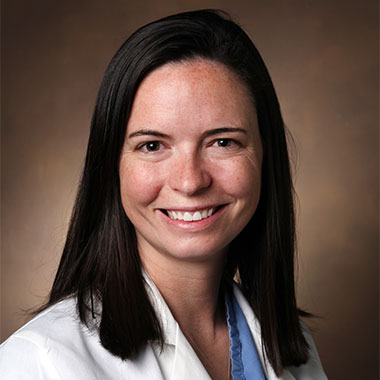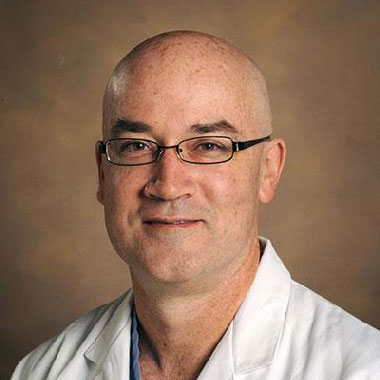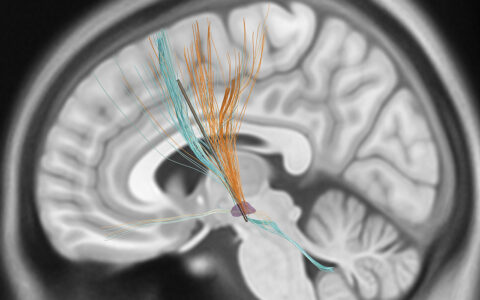Most pituitary tumors are small (less than 10 millimeters), non-functioning adenomas. Very few are clinically significant.
“Pituitary tumors are common and don’t usually cause life-threatening issues,” said Andrea Utz, M.D., an assistant professor of medicine and neurological surgery at Vanderbilt University Medical Center and medical director of the Vanderbilt Pituitary Center. “A big part of my job as a neuroendocrinologist is convincing a patient that a small adenoma should just be ignored, or that watching it for the rest of their life is the best approach.”
While nonfunctioning pituitary tumors can be managed through observation, tumors requiring immediate intervention demand a carefully coordinated model of care. Pituitary surgery is highly specialized work, and surgical outcomes are dependent on surgeon volume and experience.
“Because Vanderbilt has a long history as a high-volume pituitary center,” said Vanderbilt neurosurgeon Lola Chambless, M.D., “we felt that we had an opportunity to use our experience to design an evidence-based protocol for the perioperative management of pituitary patients that would improve patient satisfaction, streamline care and reduce costs while maintaining a very low rate of complications or adverse outcomes.”
A New Approach to Coordinating Perioperative Care
The multidisciplinary protocol Vanderbilt developed was a collaborative effort between Utz and other neuroendocrinologists; neurosurgeons Chambless and Kyle Weaver, M.D.; critical care specialist Sheena Weaver, M.D.; and a team of supporting specialists, including radiation oncologists, otolaryngologists, neuroradiologists, neuro-ophthalmologists and pediatric endocrinologists. The protocol emphasizes quality outcomes and value.
Perioperative coordination includes pre-operative steps to minimize visits required of patients. “The goal is to be able to do all the pre-operative work in the first visit,” said Utz. “Many of our patients come from long distances, so it’s critical that we optimize their time.”
When patients arrive for surgery, the team’s goal is to minimize invasive procedures, unnecessary tests and medications. While the protocol allows flexibility to handle potentially complex or unusual circumstances, many features of a “typical” operation, like urinary catheters or invasive monitoring, have been eliminated from the perioperative protocol.
“This effort involved looking at absolutely everything – from every lab draw to what bed the patient went to after surgery,” said Chambless. “Ultimately, we created an evidence-based protocol that allows these patients to go directly from the operating room to the PACU to the standard neurosurgery floor – bypassing the ICU entirely.”
Benefits of a Streamlined Approach
Avoiding the ICU has been popular with patients. “By creating a specialized unit for pituitary post-op patients staffed with nurses trained in these issues,” said Chambless, “we were able to decrease complications and reduce our average length of stay to one day when the national average is four. This represents a huge cost savings and improved patient satisfaction.”
Post-recovery, Utz and the surgeon meet with the patient on the same day. Utz arranges the long-term follow-up – coordinating with radiology, monitoring recovery and treating for hormonal imbalances. “It’s a level of care that’s more thorough and complete than if patients had to see specialists individually,” she said.
“As pituitary tumors can recur years after treatment, having an easily accessible single point of contact is important to ensuring appropriate long-term follow-up.”
The results of this work have been presented at several national meetings, and a publication detailing the protocol will be in press this spring. The team is eager to apply these concepts to patients with other disorders of the skull base, with similar quality improvement initiatives underway through the Vanderbilt Skull Base Center.







